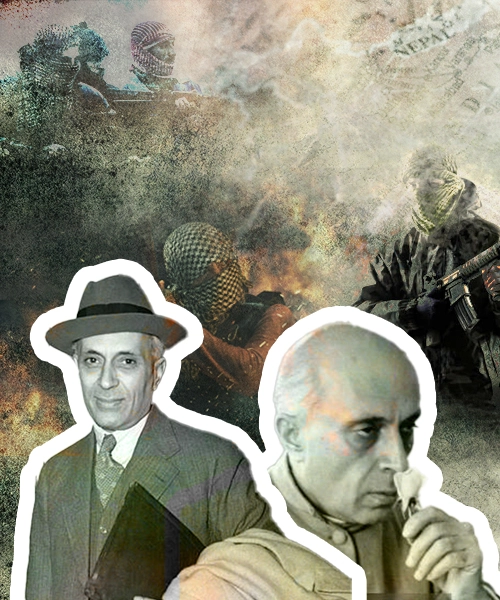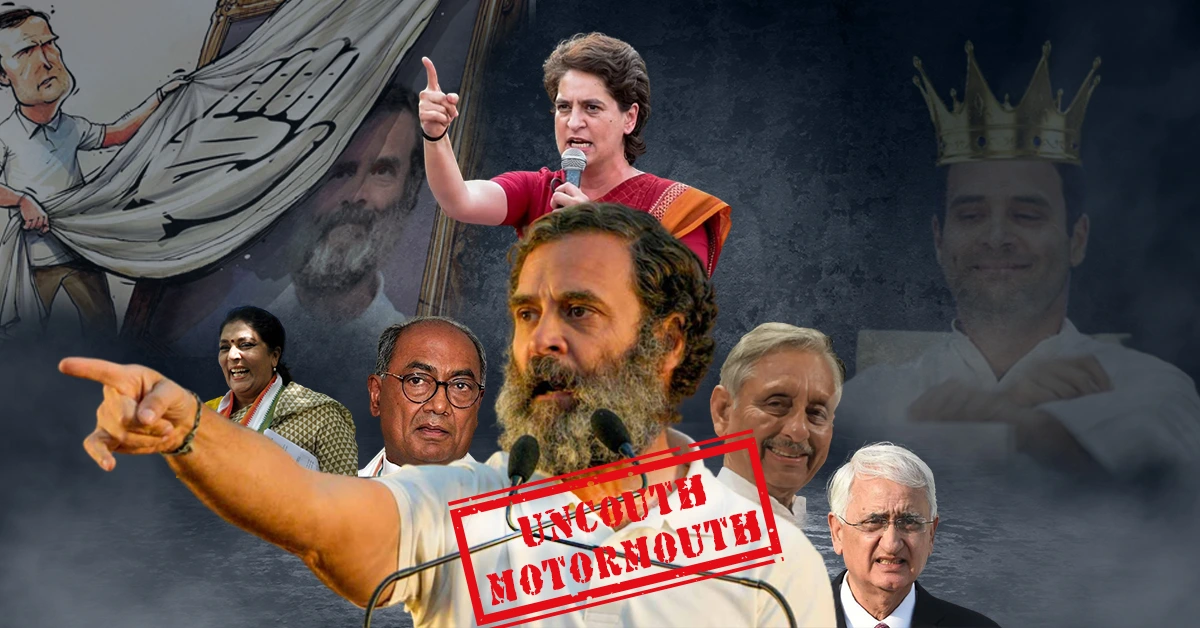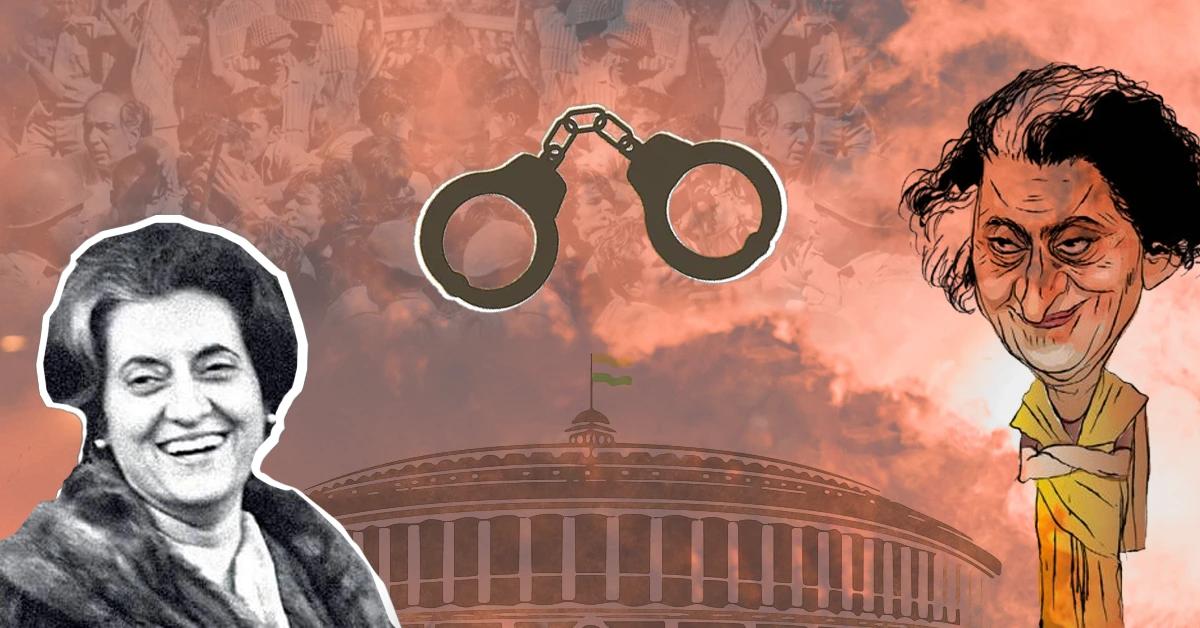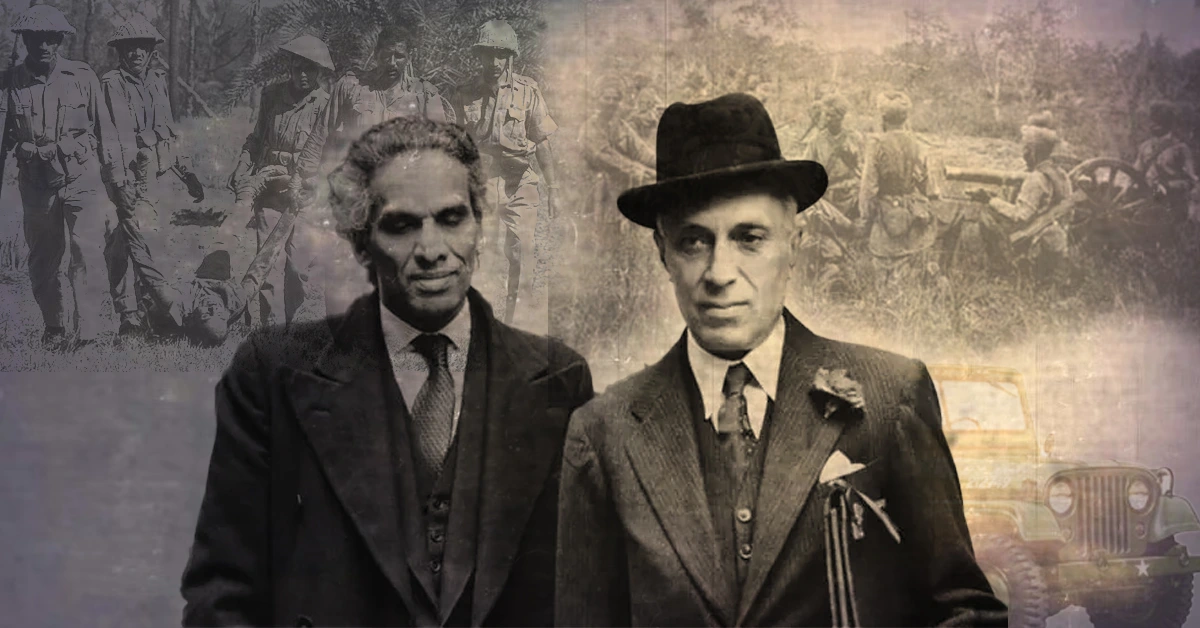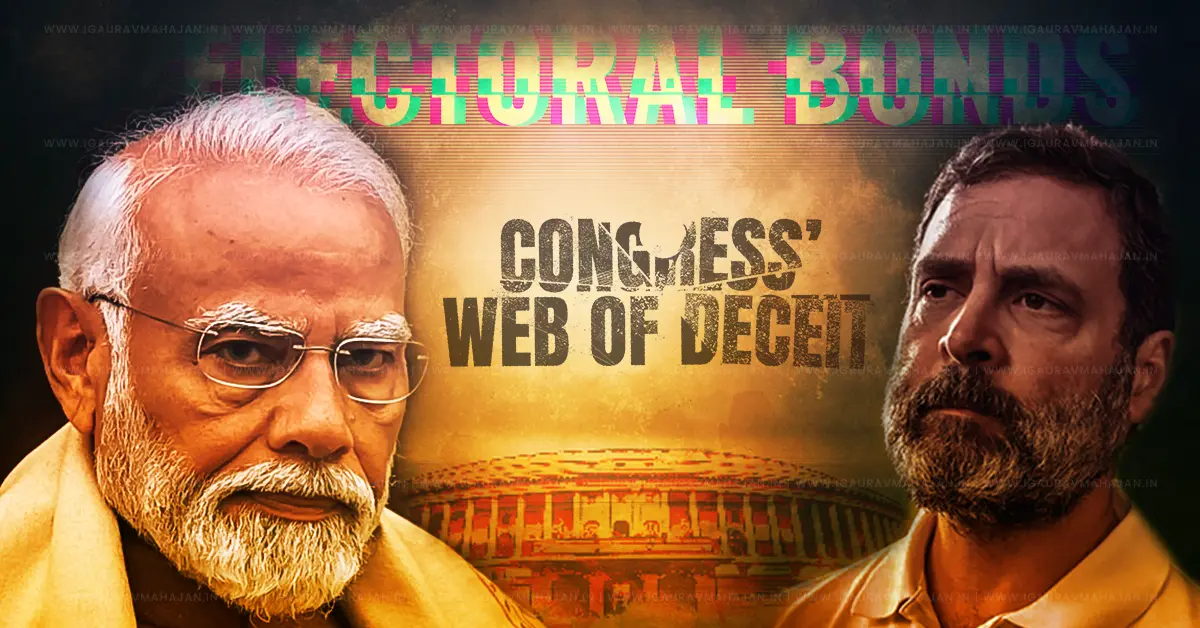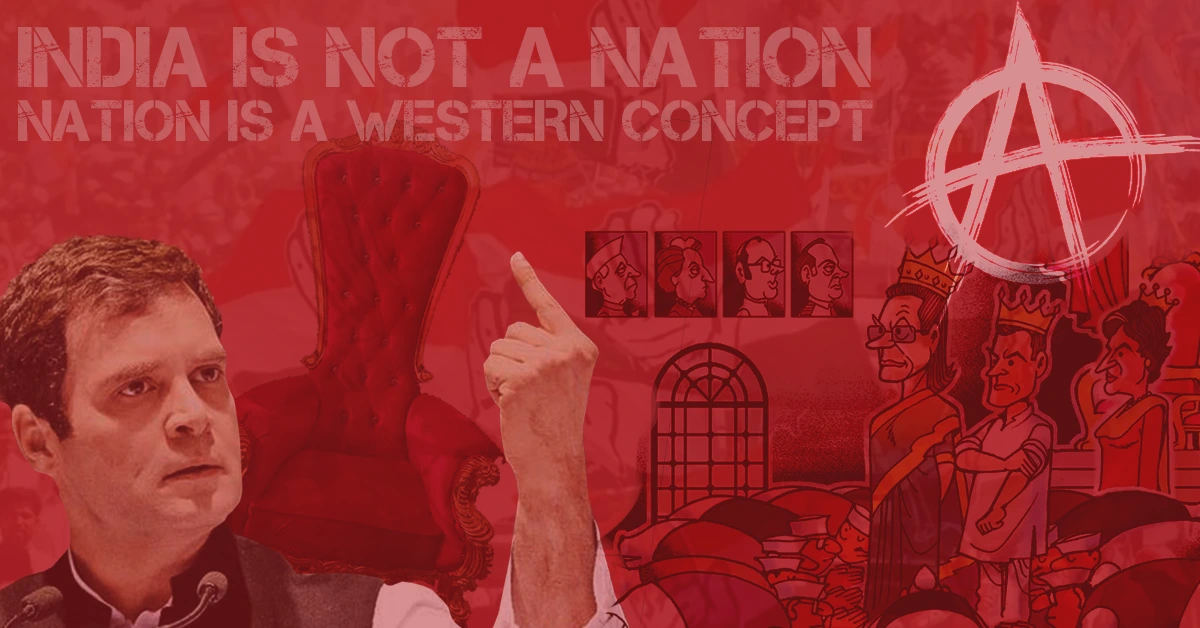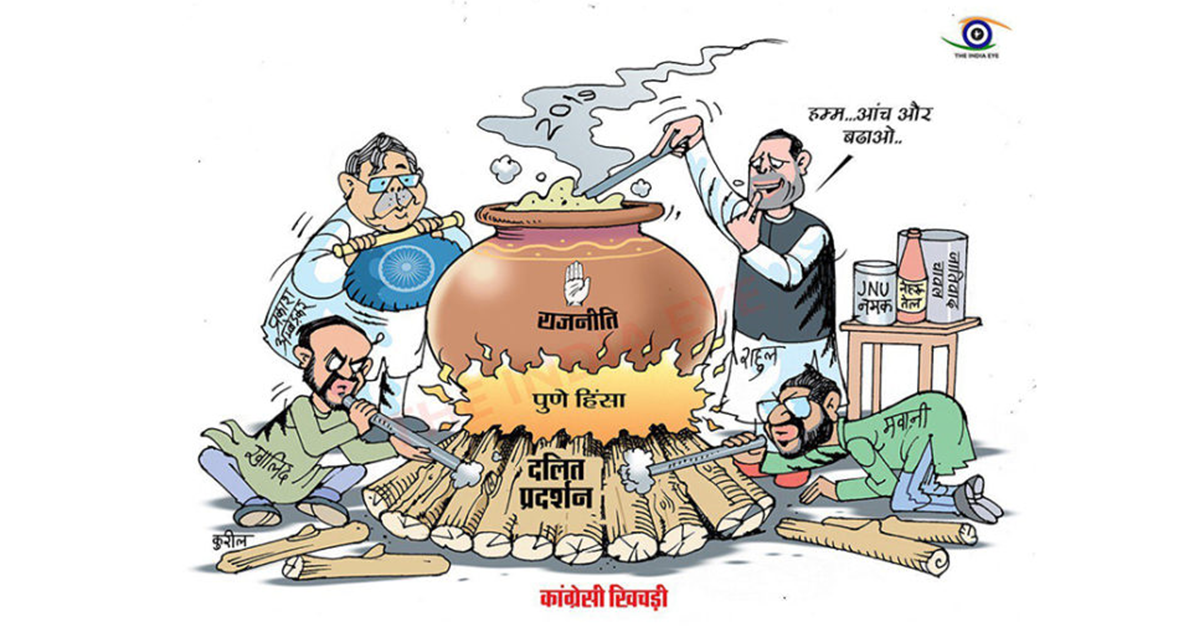The responsibility for taking India’s political discourse to such low levels of civility lies purely with Rahul Gandhi. Rahul Gandhi has been deliberately indulging in these theatrics with a definitive idea of spoiling the country’s public discourse.
- December 22, 2023
- 10 Mins Read
The Himalayan Blunders: Nehru's Selfish Games with India's Unity
(Part I)
Nehru’s abysmal leadership, marred by a servile attitude toward British interests, a blatant disregard for Maharaja Hari Singh’s desperate pleas, and a criminally negligent delay in responding to the Pakistani invasion, inflicted irreversible damage on India. His self-serving actions spawned doubt, separatism, and bloodshed, creating a regrettable and tumultuous legacy that continues to haunt the nation.
click play to listen to the article
यः सर्वदा द्वेषं धारयति, स एकः मधुरहीनो मधुकरः विचलति।
The one who harbors constant negativity goes astray like a bee without honey
Regrettably for the nation, Nehru being ‘English by education, Muslim by culture, and Hindu by an accident of birth’, embodied everything India did not need in a Prime Minister.
Nehru’s staggering array of blunders outshines every other leader of India. While some leaders falter in a few realms, Nehru’s egregious errors spanned a complete 360-degree spectrum, with virtually no area left untouched by his monumental mistakes. The catalog of Nehruvian blunders could practically fill up ten Himalayas, especially when delving into the colossal missteps surrounding Jammu and Kashmir. From unwisely declaring the accession of Jammu & Kashmir as provisional on his own accord to incorrectly involving the UN; he not only let the fantasy of a UN-mandated plebiscite persist but also sowed the seeds of division with the ill-conceived Article 370 — it’s a colossal mess that redefines the term “Himalayan blunder.”
Nehru’s blunders opened the doors that seeded seven decades of doubts, separatist mindset and bloodshed in Jammu & Kashmir. Birthing a united, geographically contiguous state representing an ancient nation required unflinching grit, determination and foresight. But regrettably for the nation, Nehru being ‘English by education, Muslim by culture, and Hindu by an accident of birth’, embodied everything India did not need in a Prime Minister.
English by Education – Nehru’s British Infatuation: Throughout Nehru’s tenure as the Prime Minister of India, he consistently played into the hands of the British. For instance, even as Mohammad Jinnah assumed the role of governor-general in Pakistan, Nehru insisted on retaining British loyalist Mountbatten as the governor-general of independent India. Even when Sardar Patel opposed transferring Rs 550 million to Pakistan, asserting that money could not be given to it “for making bullets to be shot at us”, Nehru, rather than standing firm for India’s interests, yielded to the counsel of Mountbatten and used Gandhi to persuade Patel. Seeking Gandhi’s intervention to persuade Patel reflected Nehru’s readiness to prioritize British counsel over nation’s security.
Even more alarming was Nehru’s unilateral declaration of a ceasefire against Pakistan when victory was within India’s grasp. This decision, influenced by another British loyalist Francis Robert Roy Bucher, again showcased Nehru’s unfortunate tendency to prioritize British advice over India’s strategic considerations. To compound matters, Nehru took the issue to the United Nations, again on Mountbatten’s counsel, without taking the country into confidence, a move that not only casts doubt on his political acumen but also underscores his autocratic ways.
I support the description that was used here - Nehruvian blunder. With responsibility, I want to say that the two big blunders that happened during the tenure of Nehru happened due to his decisions, because of which Kashmir had to suffer for years. - Home Minister Amit Shah during Parliamentary debate
Nehru’s Ego Stalls Accession: As early as 1931, during the Round Table Conference in London, Maharaja of Jammu & Kashmir, Hari Singh had asserted: “I am an Indian first, and then a Maharaja.” During his visit to Kashmir in May 1947, months before the partition of India, Acharya Kripalani, unequivocally stated, “Hari Singh was keen to accede to India.” In fact, Nehru himself, in a note to Mountbatten, left no room for ambiguity about Maharaja Hari Singh’s desires. Nehru wrote, “The normal and obvious course appears to be for Kashmir to join the Constituent Assembly of India. This will satisfy both the popular demand and the Maharaja’s wishes.” Thus, as early as June 1947, Nehru was well-informed about Maharaja Hari Singh’s preferences and was himself well aware of the importance of Jammu & Kashmir’s accession to India.
The desire of Maharaja Hari Singh to accede to India was evident and publicly expressed on multiple occasions. Additionally, Nehru himself revealed on several occasions that his friend Sheikh Abdullah was in favor of acceding to India as well. Nevertheless, Maharaja Hari Singh was aware that Sheikh Abdullah’s motives for Kashmir were questionable, leading to the arrest of Sheikh Abdullah.
Nehru was furious. He went to Kashmir in Abdullah’s support, but Hari Singh detained Nehru at the border. An aide of Nehru recorded Nehru’s reaction on being detained — “He violently trampled his foot on the floor and told them that one day the Maharaja of Kashmir would have to repent and apologize to him for the discourtesy shown to the president-elect of the Indian National Congress.” Fueled by spite, Nehru cynically exploited an opportunity for payback by not accepting Maharaja Hari Singh’s request for accession with India, conveniently and callously disregarding the fact that the nation’s welfare should supersede his self-serving ego.
Interestingly, while Nehru thought himself to be the natural heir of the British to rule over India, 12 out of 15 Pradesh Congress Committees (at that time only the Pradesh Congress Committees could nominate and elect the Congress President and consequently the first Prime Minister) nominated Sardar Patel. The remaining three abstained from the nomination process. Thus, no Pradesh Congress Committee, the only legitimate body to nominate and elect the Congress President, and consequently the first Prime Minister, nominated Jawaharlal Nehru.
In a Lok Sabha speech on 24 July 1952, Nehru openly admitted that Maharaja Hari Singh, akin to other princely states seeking to join India, had initiated contact with Indian leadership as early as July 1947 — a whole month before India gained independence. In Nehru’s own words, the question of accession “came up before us informally round about July or the middle of July”. Nehru goes on to further state that, “we had contacts with the popular organization there, the National Conference, and its leaders, and we had contacts with the Maharaja’s Government also”. In the same speech Nehru states, “the advice we gave to both was that Kashmir is a special case and it would not be right or proper to try to rush things there”. He further states, “even if the Maharaja and his Government then wanted to accede to India, we would like something much more, that is, popular approval.”
Nehru’s blunders did not stop at just his July 1947 perfidy.
With the July 1947 attempt of accession rebuffed by Nehru, an attempt was again made by Maharaja Hari Singh in September 1947, a full month before Pakistan’s invasion. MC Mahajan, Prime Minister of Kashmir at the time of accession, recounts his meeting with Nehru in September 1947. Writing in his autobiography, Mahajan states: “I also met Pandit Jawaharlal Nehru, the Prime Minister of India. The Maharaja was willing to accede to India and also to introduce necessary reforms in the administration of the state. Panditji wanted an immediate change in the internal administration of the state.” Change in the internal administration meant Sheikh Abdullah becoming the singular power center, and exile for Maharaja Hari Singh.
Nehru’s ego-driven decisions during Jammu and Kashmir’s accession reveal a self-serving leader indifferent to national interests. Despite Maharaja Hari Singh’s clear intent to accede to India, Nehru, consumed by personal animosity, callously disregarded the nation’s welfare. His arrest by Hari Singh fueled Nehru’s vengeful stance, rejecting the accession request.
Interestingly, while Nehru thought himself to be the natural heir of the British to rule over India, no Pradesh Congress Committee, the only legitimate body to nominate and elect the Congress President, and consequently the first Prime Minister, nominated Jawaharlal Nehru.
Nation Left Hanging: Nehru remained unperturbed despite the invasion of Jammu & Kashmir by Pakistan on 20 October 1947. Maharaja Hari Singh’s desperate appeals to join the Indian union were heartlessly dismissed by Nehru. On 21 October 1947, a day after the onslaught began, Nehru coldly advised Jammu and Kashmir’s Prime Minister, “it will probably be undesirable to make any declaration of adhesion to the Indian Union at this stage.”
By around 26 October 1947, Pakistani forces were perilously close to Srinagar. Nehru’s procrastination had already resulted in the occupation of Gilgit, Baltistan, and Muzaffarabad by Pakistani forces, who wreaked havoc and pillaged the territories they traversed. But despite the pressing urgency of the situation, Nehru persisted in delaying the accession, allowing Pakistani forces to advance unchecked. At this stage, Maharaja Hari Singh unilaterally signed the instrument of accession, but Nehru was still waffling.
In his speech in Lok Sabha in 1952, Nehru records, “I remember, it must have been the 27th of October, after practically an all-day sitting in the evening we came to the conclusion that in spite of all the risks and dangers involved, we could not say ‘No’ to the appeal.”
Nehru had the opportunity to align himself with the national interest by accepting Jammu & Kashmir’s accession to India on several occasions. However, he callously disregarded this chance, demonstrating a perplexing alignment with Abdullah’s agenda over the welfare of the nation. Nehru’s insistence on delaying a declaration of adhesion to the Indian Union during such a critical stage exposed a puzzling prioritization of personal interests over the nation’s stability and security.
With the issue of accession settled, there would have been no Pakistani invasion, no Pakistan-Occupied Jammu and Kashmir (PoJK), no reference to the United Nations, no locus for Pakistan to fight the wars on Kashmir in later decades, no jihadi terrorism and no uprooting of Kashmiri Hindus in 1990. As late as 21 October 1947, if Nehru had acted in time, there would still be no PoJK.
Nehru’s selfish games with India’s unity left a lasting legacy of doubts, separatism, and bloodshed in the region. Nehru’s selfish games with India’s unity, serve as a stark reminder of the colossal blunders that altered the course of history, leading to the enduring challenges faced by the nation even today.
Arvind Kejriwal can be seen making promises to the people, only to break them later. He had claimed to be a people’s leader and vowed to behave in a way that would benefit the people, but now appears to be doing the opposite. Kejriwal has also been seen giving advice and guidance to even the President of India, but now he himself seems to be behaving in a manner that is contrary to his own advice. These videos raise questions about Kejriwal’s credibility as a leader and his ability to keep his promises to the people.
Share this article:
Leave a Comment
Recommended For You
Rahul Gandhi’s modus operandi has remained the same — propagating lies, making baseless accusations and spreading false narratives with the intent to tarnish Narendra Modi’s image. But every time he tries doing it, he falls flat on his face.
On one hand Rahul Gandhi is talking about Bharat Jodo, on the other, his party has gone after RSS by posting inciteful messages. By claiming that India was never a nation and by pitching non-BJP ruled states against the center, Rahul Gandhi is trying to create a divide in the →Read More →
Rahul Gandhi believes it's his birthright to rule over India. He has a habit of making fabricated allegations beyond facts. Each of his narratives are coated with arrogance and ego and often undermine India's sovereignty. Now it’s for the people of the country to decide if the self-proclaimed monarch should →Read More →
To preserve the idea of India, let us remind ourselves of and reiterate our commitment to the spirit of democracy, liberty, equality & freedom which India was built on. Let us remember and salute the brave heroes of the Emergency.
Between choosing the high moral ground and the practical path, the Bharatiya Janata Party (BJP) chose the practical one by aligning with Ajit Pawar. To blame the BJP for not choosing the moral high ground while giving a clean-chit to others for playing dirty politics is nothing but hypocrisy.
Speaking out against Nehru's lingering influence is essential. His reign planted the seeds of corruption, with entitlement overshadowing merit and dynasty prevailing over democracy. The parallel between Nehru's era and Sonia-Rahul Gandhi's is uncanny. The thread of corruption persists, a sinister legacy passed through generations.
Electoral Bonds represented a pivotal shift towards transparency in political financing, aiming to curb the influence of black money in India's democratic process. However, the Supreme Court's decision to invalidate them not only undermines efforts to clean up the system but also serves as a lifeline to the entrenched culture →Read More →
Rahul Gandhi’s Bharat Jodo Yatra is an attempt for starting a new divisive agenda of North vs South, one state vs the other, and importantly, states vs the BJP government at the center. It is an attempt to loosen the bolts of national unity.
The battle lines have been drawn for the 2019 general elections. The Congress and their pets continue their deplorable practice of turning tragedy into farce in pursuit of cynical politics.

